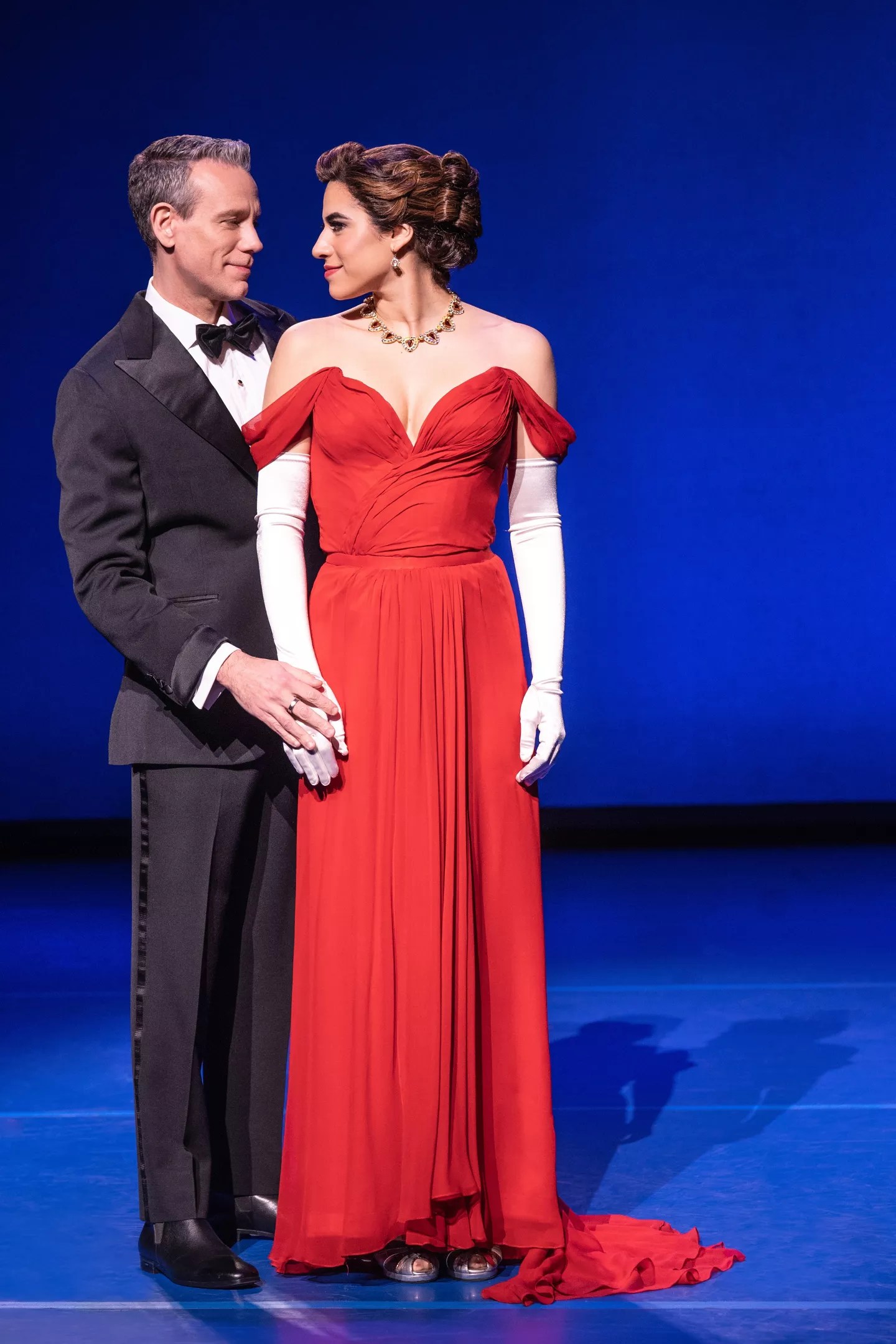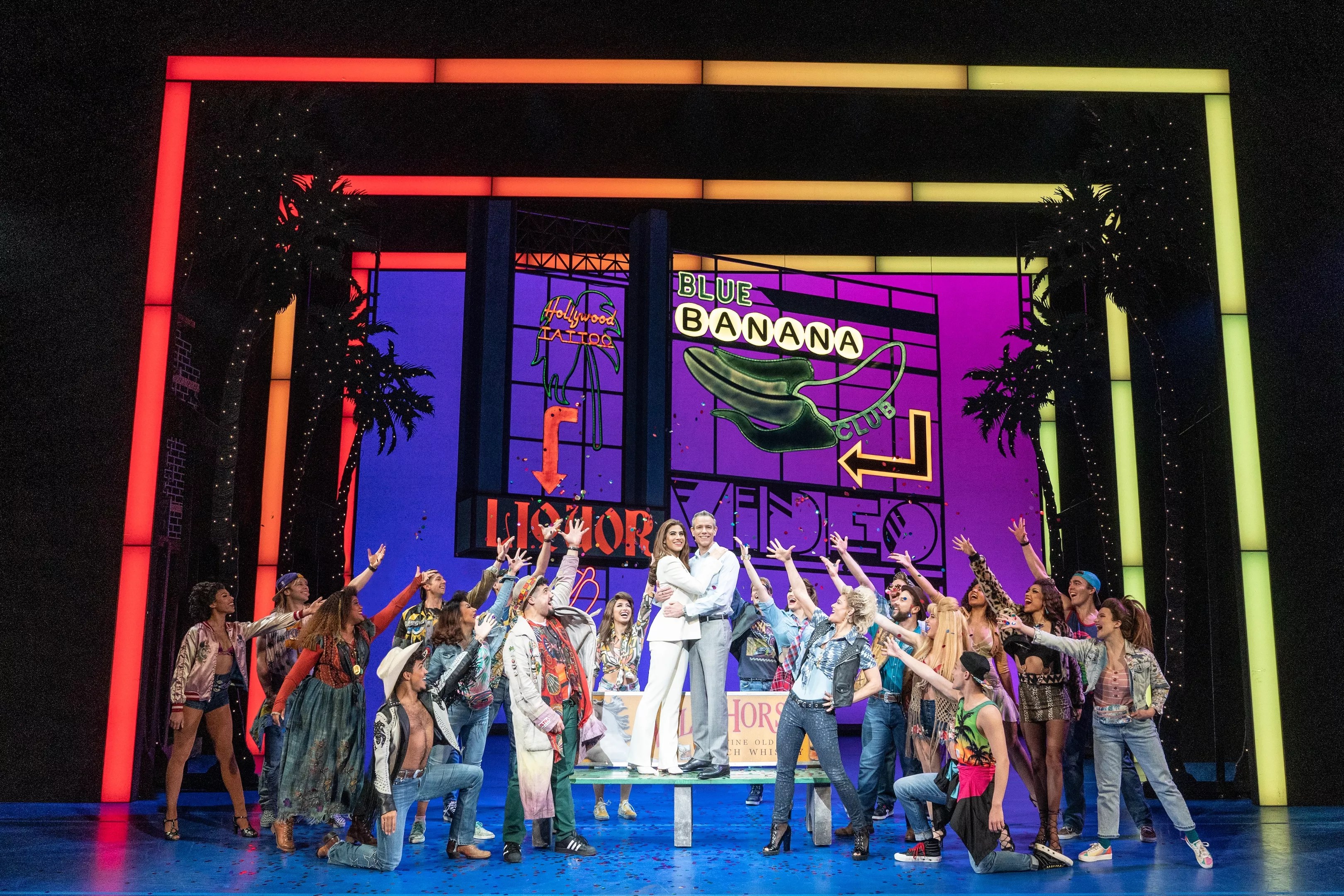
Matthew Murphy for MurphyMade

Audio By Carbonatix
You know you’re getting old when every entertainment token from your childhood – bands, series, films – starts getting reunited, remade, rebooted or otherwise repackaged and sold to you again. And you’re the first sucker in line to buy it.
Millennials have long declared nostalgia as their drug of choice and will snort every bit of ’90s and early 2000s memorabilia until we’re stuffed like beanie babies. Which is why a trend started a few years ago among shrewd Broadway producers of taking the beloved stories of our youth and bedazzling them with musical numbers and choreography.
Dallas stages have now hosted the musical versions of Legally Blonde, Matilda, Cruel Intentions and Mean Girls. If nothing else, interest in the revival of these titles should serve as a reminder to schedule that prostate screening or mammogram – you’re probably pushing 40.
But if one movie screams “Broadway candidate,” jazz hands and all, it’s Pretty Woman. For the two people who haven’t seen it, it was a romantic comedy from 1990 about a wealthy businessman who falls for a Los Angeles prostitute after he propositions her to stay with him for the week at the Beverly Wilshire Hotel for the price of $3,000, plus perks like fine dining and trips to Rodeo Drive. The streetwalker, Vivian Ward, was played by Julia Roberts, and bland businessman Edward Lewis was played by your mom’s “hall pass,” Richard Gere.
The real whore, the movie taught us, was Edward, a suit of a man who will spread his body and soul wide open for the right price in the name of a business deal. Other than his callous capitalist streak, Edward’s most interesting trait is that he’s afraid of heights. He also has some sort of grudge with his father that has cost him thousands of dollars in therapy, but he’s lighthearted long enough to play little jokes like that silly way of his of closing the jewelry box on your hand as he’s showing you an expensive necklace. And that’s the narrow kind of duality that made our moms get pregnant at the thought of Richard Gere.
We know nothing about Vivian other than she’s a prostitute who doesn’t kiss on the lips, but most important that she’s fun! And full of life! She sings Prince off-key while taking a bubble bath. She’s just like any other non-sex worker woman; she laughs out loud while watching I Love Lucy.
Where Pretty Woman: The Musical really fails is that it could’ve filled the holes in the character’s background stories. We still know nothing about Vivian except that she’s a so-fun prostitute.
It’s not like we expected the subject of sex work to be treated with any verisimilitude by a musical theater show based on a romantic comedy that treats prostitution like a bad quirk to be ironed out through romance.
To begin with, the work hazards and realities of the oldest profession in the world have long evaded filmmakers of all kinds. Even more unconvincing than Nicolas Cage’s portrayal of a normal human being was his co-star Elisabeth Shue’s performance in Leaving Las Vegas, in which she played a prostitute with all the edge and grit of an Old Navy salesperson.
Even for surrealist Luis Buñuel, the most fantastical element in his work might be Belle de Jour‘s bored housewife Catherine Deneuve taking up a post at a brothel just for a thrill. Likewise, even a disruptive newcomer such as Quentin Tarantino couldn’t help but write Alabama in True Romance as a lovable hooker who falls in love on her fourth day on the job.
So it should come at no surprise that Pretty Woman: The Musical, based on Pretty Woman the romcom, strays even further from any Gaspar Noe-type of extreme pessimistic realism and avoids any interesting moral debates surrounding sex work and about what constitutes coercion or empowerment.
The movie Pretty Woman never got close to those subjects at all. It had been originally written as a dark script for a non-romantic non-comedy called 3,000 until it fell in the hands of Garry Marshall.
The TV producer made the film into a smash hit by sugar-coating the script into the fluffy marshmallow we’ve come to regard as a modern-day fairy tale.
If the film’s heartfelt levity is what you love about Pretty Woman, you’ll really love the musical presented by Broadway Dallas, playing at Music Hall at Fair Park until Feb. 5. It drips with sap and so much cuteness and simple sentiment in songs such as “Luckiest Girl in the World.”
The musical takes Marshall’s romcom vision but as seen through heart-shaped, pink-tinted glasses. It’s Pretty Woman, but so further Disney-fied it’s a wonder that Vivian is still a prostitute and not a small-town dog-treat baker.
The smart thing about the use of this kind of camp in art is that it’s a style that’s self-protective, immune to any serious critique. Pointing out that a production is cheesy when it’s deliberately designed to embrace sentimental slush through razzle-dazzle musical acts is like calling out a mumblecore indie film as having “bad acting.” Uh, huh, yeah, they know that, so?
The show starts out on Sunset Boulevard, where Marshall’s fantasy really unfolds without the restraints imposed by the silver screen. What started off in the film with a man on the street saying “Welcome to Hollywood, what’s your dream?” is blown up into an opening number that will be sort of the underlying theme to the entire show.
The biggest surprise is that the soundtrack, written by Bryan Adams of Bryan Adams fame and Jim Vallance, is perfectly forgettable. They might as well have used AI to write a collection of schmaltzy love songs with predictable lyrics such as “If I could be anywhere it would be right here.”

Here’s that red dress we know you were dying to see.
Matthew Murphy for MurphyMade
None of the songs are likely to become Broadway standards, and one of them, the maudlin rock-pop “You and I,” dares to sample La traviata‘s “Amami, Alfredo” as Edward and Vivian watch the opera. The production choice is amusing in its boldness but does the songwriters no favors and only highlights the lack of compositional power next to Verdi’s.
Just like in the film (which also boasted Roxette’s “It Must’ve Been Love”), the reigning standout song is still Roy Orbison’s “Pretty Woman,” which the musical teases and hypes up. But as happened when “You and I” cut into La traviata, the postponement of the song seems to only concede that Orbison’s oldie is the true star on the soundtrack.
The great thing about Richard Gere’s inexpressive, sleepy presence is that it served as a gray wall from which Julia Roberts’ charisma could bounce, with her signature laugh as loud as her big red hair. Some of that dynamic plays well in the musical thanks to the casting of the main actors playing Vivian and Edward, Jessie Davidson and Adam Pascal, whose voices manage a superhuman range.
The musical is missing the honey-warmth and gravitas of the hotel manager as delivered by actor Hector Elizondo, who in the film is a comforting bridge for Vivian between the ephemeral luxury of Beverly Hills and the working class that serves it. The musical makes his character’s presence little more than a plot device.
But it’s the side characters who sparkle even in such a glitzy production, starting with the hotel bellhop Giulio – whose physical comedy is a Minions-type of zany – and with Vivian’s best friend Kit, played with a brilliant sass by Jessica Crouch.
In addition to birthing America’s sweetheart in Roberts, the film created some of the most show-stopping moments in fashion ever caught on film, which for the costume department was an order as tall as Vivian’s shiny thigh-high boots.
The production sets us up for disappointment first with a spot-on replica of Vivian’s teensy white-and-blue dress, and by faithfully capturing the early ’90s idea of high-fashion in Vivian’s shopping scenes, especially with the nods to the gaudy S&M of Versace.
If anything, revisiting the fashion of the ’90s provides a curious retrospective. Vivian’s daring “streetwalking” outfit once seemed a perfectly representative risqué choice for streetwalking, though it now seems about as modest as any outfit you’d see during a night out in Deep Ellum.
But the fashion story will soon take us on a greater emotional trip than anything else in the musical. The first time we see Vivian in the film after she’s been Pygmalion-ed, she’s in a black lace cocktail dress and matching choker, with her hair in a ponytail so on point that Edward doesn’t recognize her in the hotel bar. And we’re not gonna pretend like we don’t sometimes wear yoga pants to the office with a wrinkled crop top or anything, but they added too much white to the black dress. And while it might have been done for effect to bring out the lace pattern, we were just warming up our Miranda Priestly up-and-down judgmental glance.
Then there’s the red dress with white gloves that Vivian wears to the opera, so iconic we’re surprised Kim Kardashian hasn’t starved herself to wear it to the Met Gala. They crushed that one. And the producers know this is what we came for. There’s a line in one song about letting us see the dress.
But then, the plot twist. Someone somewhere made a choice to turn Vivian’s also absolutely iconic brown polka dress – the very one she wears to the polo match in a matching hat – into a blue polka dress.
In the name of the Father, Son and House of Gucci, we need answers from the person responsible for this creative choice. Have we gone color blind? Was there only one Joanne’s store open with only one polka-dotted fabric left? Did the brown color not pop sufficiently from the stage? We need to know whom to charge for this direct assault on a cherished visual memory.
After we left the theater, the image of the blue dress lingered. No blue dress has taken up so much space in our thoughts since the internet split into two camps, with one claiming the dress was gold. And no other blue dress has been so haunting since Monica Lewinsky kept one in her closet after it had been, uh, presidentially soiled.
If you can get over the absence of the brown dress, fans of the Pretty Woman film will find enough replicated dialogue and common ground to embrace the camp of the show. The original Pretty Woman may be an escapist exercise in (extended) suspended disbelief already, but the musical is even far more optimistic.
Everyone has a dream, and this is Garry Marshall’s, whose heart still beats in Pretty Woman: The Musical.
The Broadway Dallas production of Pretty Woman: The Musical is running through Sunday, Feb. 5, at Music Hall at Fair Park, 909 First Ave.

The cast of Pretty Woman: The Musical delivers Hollywood dreams.
Matthew Murphy for MurphyMade